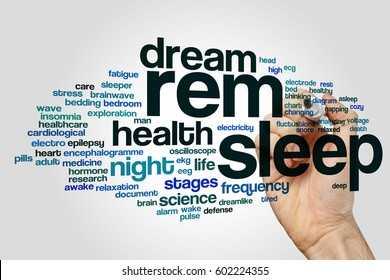Explore the World's Best Ideas
Join today and uncover 100+ curated journeys from 50+ topics. Unlock access to our mobile app with extensive features.
Our sleep-wake pattern
Our molecular clock inside our cells aims to keep us in sync with the sun.
When we disregard this circadian rhythm, we are at a greater risk for illnesses such as diabetes, heart disease, and dementia.
332
1.9K reads
The lifestyle imbalance
Thomas Edison said that sleep is "a bad habit." Like Edison, we seem to think of sleep as an adversary and try to fight it at every turn. The average American sleeps less than the recommended seven hours per night, mostly due to electric lights, television, computers, and smartphones.
However, we are ignoring the intricate journey we're designed to take when we sleep.
285
1.37K reads
Stage One Sleep
When we fall asleep, the nearly 86 billion neurons in our brain starts to fire evenly and rhythmically. Our sensory receptors become muffled at the same time.
The first stage of shallow sleep lasts for about 5 minutes.
320
1.43K reads
Stage Two Sleep
We spend about half our sleeping time in stage 2. It can last up to 50 minutes during the first 90-minute sleep cycle, and less during subsequent cycles.
During this time the brain consolidates the information that has been collected during the waking hours. It makes connections you might not make otherwise. It also curates which memories to keep and which to delete.
330
1.32K reads
Stage Three Sleep
Some scientists consider stage 3 and 4 to be one stage. Your body rests during these stages to help cells recover. Your cells produce the most growth hormone here to mend your bones and muscles.
While all this is happening, your muscles are fully relaxed. Mental activity is limited, including dreaming.
306
1.26K reads
Stage Four Sleep
We can remain in stage 4 - similar to a coma or brain death - for only about 30 minutes before the brain wakes up and falls back to sleep again.
Even healthy sleepers wake several times a night, but might not be aware of it.
313
1.17K reads
REM
Rapid Eye Movement or REM follows after the four stages of NREM (non-REM) sleep and occupies about one-fifth of total rest time in adults.
During REM, all vivid dreaming takes place. Our internal temperature is at its lowest. Our heart rate increases and our breathing is irregular. Generally, our muscles are immobilized, and we are incapable of physical response, except for our eyes and ears. However, our brain is fully active.
315
1.1K reads
Sleep more essential than food
Sleep is essential for maintaining a healthy immune system, body temperature and blood pressure. The lack of sleep prevents us from regulating our moods well or recovering promptly from injuries.
338
1.12K reads
Sleep deprivation facts
- More than 80 million American adults suffer from chronic sleep deprivation.
- Fatigue contributes to more than a million auto accidents each year.
- About one-third of us will suffer from some form of sleep disorder.
- People with Kleine-Levin syndrome will sleep nearly nonstop for a week or two and return to regular cycles without any side effects.
- 4 % of US adults take sleeping pills in any given month.
285
1.16K reads
Effects of too little sleep
- The prefrontal cortex, the place in the brain that controls decision-making and problem-solving, is the first to suffer from not enough sleep. It causes you to be more irritable, moody and irrational.
- Sleeping less than six hours a night increases the risk of depression, psychosis, and stroke.
- Lack of sleep is tied to obesity. The stomach and other organs overproduce ghrelin, the hunger hormone, which causes overeating.
352
1.28K reads
IDEAS CURATED BY
Sarah 's ideas are part of this journey:
Learn more about health with this collection
Proper running form
Tips for staying motivated
Importance of rest and recovery
Related collections
Similar ideas
9 ideas
Why Do We Dream? The Role of Dreams and Nightmares
healthline.com
3 ideas
How does your brain wake up from sleep?
theconversation.com
8 ideas
Stages of Sleep - Sleep Foundation
sleepfoundation.org
Read & Learn
20x Faster
without
deepstash
with
deepstash
with
deepstash
Personalized microlearning
—
100+ Learning Journeys
—
Access to 200,000+ ideas
—
Access to the mobile app
—
Unlimited idea saving
—
—
Unlimited history
—
—
Unlimited listening to ideas
—
—
Downloading & offline access
—
—
Supercharge your mind with one idea per day
Enter your email and spend 1 minute every day to learn something new.
I agree to receive email updates


